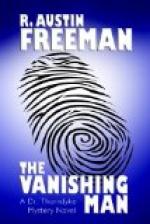“The testator in this case was a shipmaster, and his disappearance was accompanied by the disappearance of the ship and the entire ship’s company in the course of a voyage from London to Marseilles. The loss of the ship and her crew was the only reasonable explanation of the disappearance, and, short of actual demonstration, the facts offered convincing evidence of the death of all persons on board. I mention this case as an illustration. You are not dealing with speculative probabilities. You are contemplating a very momentous proceeding, and you must be very sure of your ground. Consider what it is that you are asked to do.
“The petitioner asks permission to presume the death of the testator in order that the testator’s property may be distributed among the beneficiaries under the will. The granting of such permission involves us in the gravest responsibility. An ill-considered decision might be productive of a serious injustice to the testator, an injustice that could never be remedied. Hence it is incumbent upon you to weigh the evidence with the greatest care, to come to no decision without the profoundest consideration of all the facts.
“The evidence that you have heard divides itself into two parts—that relating to the circumstances of the testator’s disappearance, and that relating to certain human remains. In connection with the latter I can only express my surprise and regret that the application was not postponed until the completion of the coroner’s inquest, and leave you to consider the evidence. You will bear in mind that Doctor Summers has stated explicitly that the remains cannot be identified as those of any particular individual, but that the testator and the unknown deceased had so many points of resemblance that they might possibly be one and the same person.
“With reference to the circumstances of the disappearance, you have heard the evidence of Mr. Jellicoe to the effect that the testator has on no previous occasion gone abroad without informing him as to his proposed destination. But in considering what weight you are to give to this statement you will bear in mind that when the testator set out for Paris after his interview with Doctor Norbury he left Mr. Jellicoe without any information as to his specific destination, his address in Paris, or the precise date when he should return, and that Mr. Jellicoe was unable to tell us where the testator went or what was his business. Mr. Jellicoe was, in fact, for a time without any means of tracing the testator or ascertaining his whereabouts.
“The evidence of the housemaid, Dobbs, and of Mr. Hurst is rather confusing. It appears that the testator came to the house, was shown into a certain room, and when looked for later was not to be found. A search of the premises showed that he was not in the house, whence it seems to follow that he must have left it; but since no one was informed of his intention to leave, and he had expressed the intention




